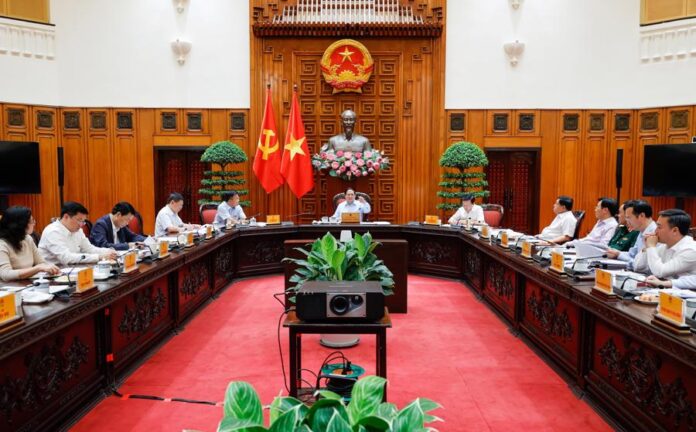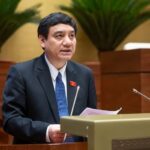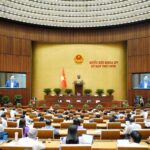The meeting was attended by Party Central Committee members: Deputy Prime Ministers Tran Hong Ha, Le Thanh Long, Ho Duc Phoc, Nguyen Chi Dung, Minister of Finance Nguyen Van Thang, Minister and Chairman of the Government Office Tran Van Son; and leaders of ministries, sectors, and central agencies.
According to a report by the Ministry of Finance – the agency in charge of drafting the National Assembly’s Resolution, the tasks and solutions stipulated in Resolution 68 need to be institutionalized into three groups.
Group 1 includes tasks and solutions with relatively clear content, a sense of urgency, but not yet institutionalized or in need of immediate amendment and supplementation. These fall under the authority of the National Assembly and are not within the scope of the laws included in the agenda of the 9th session of the 15th National Assembly. For this group, the Ministry of Finance proposed drafting a resolution of the National Assembly, focusing on 10 specific mechanisms and policies.
Group 2 covers tasks and solutions with relatively clear content that need to be institutionalized or immediately amended and supplemented. They fall within the scope of the laws included in the agenda of the 9th session of the 15th National Assembly. This group consists of eight specific mechanisms and policies. The Ministry of Finance recommended that the drafting agencies urgently review and consider supplementing these in the draft laws currently submitted to the National Assembly at this session.
Group 3 includes tasks and solutions that serve as orientations and are not urgent. These require time for thorough research and evaluation before proposing the development or amendment of relevant laws, which will then be submitted to the National Assembly for approval. For this group, the Ministry of Finance suggested including them in the draft Action Program of the Government to assign relevant ministries and sectors to carry out studies according to a specific roadmap.
Concluding the meeting, Prime Minister Pham Minh Chinh acknowledged and highly appreciated the efforts of the agencies in drafting and submitting the Resolution No. 68 to the Politburo, as well as in preparing the draft Resolution of the National Assembly and the Action Program of the Government.
The Prime Minister emphasized the need to urgently concretize and institutionalize the Party’s directives in Resolution 68 so that the policies can be promptly implemented. Therefore, the draft Resolution must be submitted to the ongoing 9th session of the National Assembly to address pressing issues. Given the tight timeline, high demands, and extensive content, an appropriate and feasible approach is necessary.
Analyzing and emphasizing certain aspects for further refinement by the agencies, the Prime Minister stated that it is crucial to focus on what businesses and people expect the most. The content should be urgent, feasible, and able to create a significant impact, truly addressing difficulties and bottlenecks, and unleashing new momentum and dynamism. It should foster a trend and promote the development of enterprises, releasing resources and productive forces.
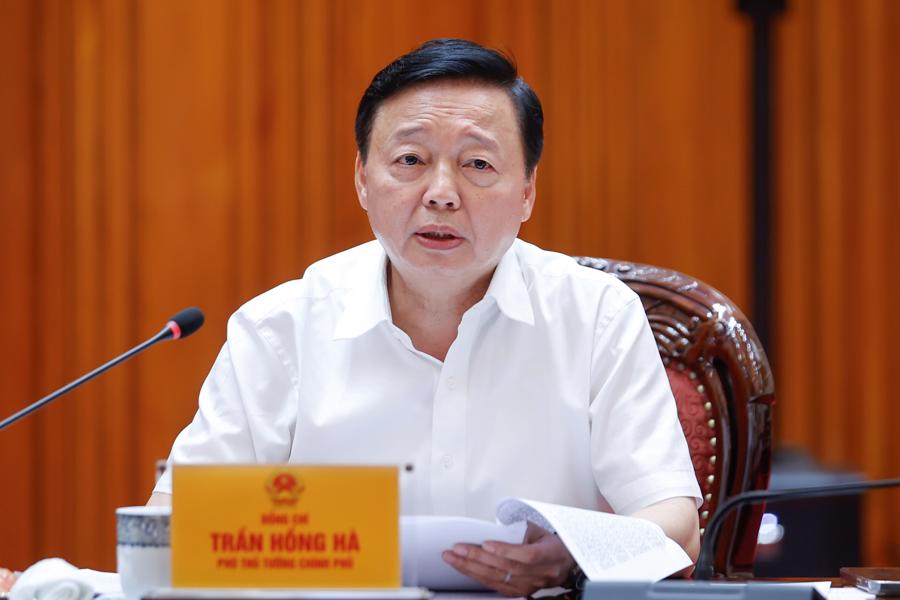
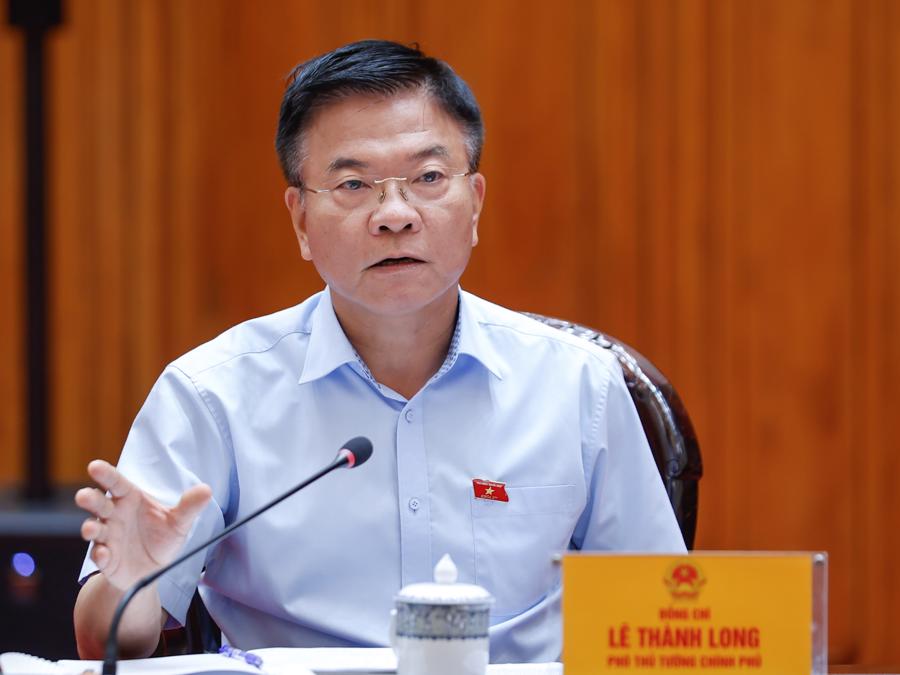
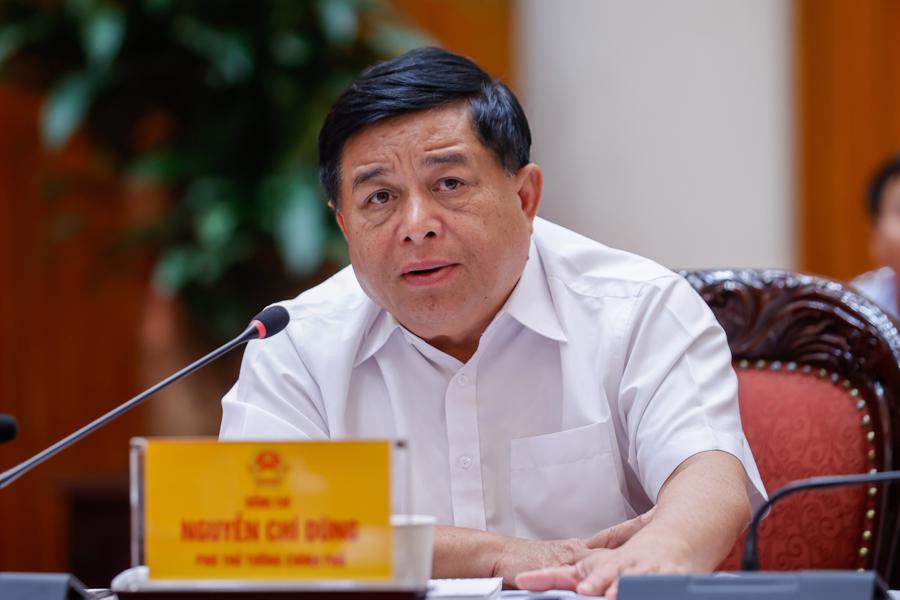
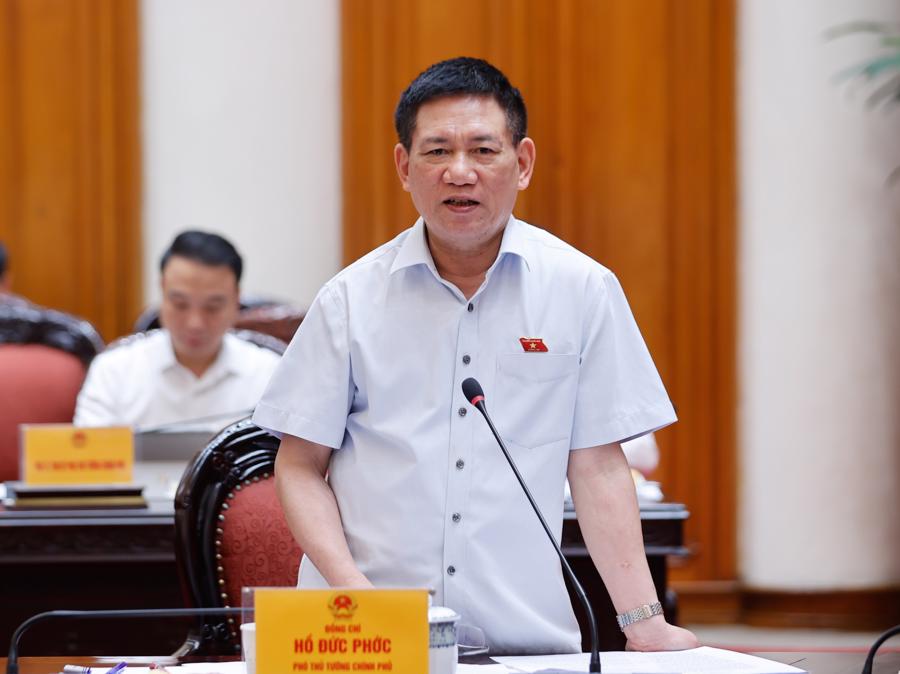
The Deputy Prime Ministers spoke at the meeting. Photo: VGP
With the determination to achieve the goal of having 2 million enterprises by 2030, twice the current number of nearly 1 million enterprises after nearly 40 years of renovation, the Prime Minister stated that administrative procedures must be as fast, simple, and cost-effective as possible. Simplifying business establishment, dispute resolution, and bankruptcy procedures is essential.
Along with this, there should be mechanisms to promote enterprise development to create jobs and livelihoods for the people. This includes encouraging and facilitating household businesses to become enterprises and small enterprises to grow into larger ones. It is also crucial to concretize the content of Resolution 68 regarding the assurance of property ownership rights, freedom of enterprise, and equal competition. Promote public-private partnerships in the forms of public leadership and private management, public investment and private management, and private investment and public use.
Enhance decentralization for ministries, sectors, localities, and investors in ordering projects and works to be performed by enterprises, with the principle of ensuring progress, quality, no capital escalation, and no corruption, waste, or negativity. The mechanisms should be flexible but accompanied by tools for strengthened supervision and inspection.
Regarding taxes, the Prime Minister instructed to promptly implement those aspects that can be done immediately and to continue studying those that require further research.
Particularly, to assure people and businesses in their investment, production, and business activities, it is necessary to concretize the content of Resolution 68 on “complying with the principle of clearly distinguishing between criminal, administrative, and civil liability; between legal entities and individuals in handling violations.” When handling civil economic violations, civil and economic measures should be prioritized, allowing businesses and businessmen to proactively remedy violations and damages.
In cases where the application of the law may lead to criminal prosecution or not, criminal prosecution should be avoided. If the case warrants criminal prosecution, economic remedial measures should be prioritized and considered as an important basis for determining subsequent handling measures.
Assigning Deputy Prime Minister Nguyen Chi Dung to continue to directly direct the drafting of the Resolution, the Prime Minister requested that, with a spirit of not being perfectionist or hasty, the agencies should promptly gather feedback from the business community and continue to refine the draft Resolution in May for submission to the 9th session of the National Assembly, ensuring compliance with Resolution 68 of the Politburo.
The Prime Minister directed the formulation of the Government’s Action Program to implement Resolution 68 with a high determination, great efforts, resolute actions, a focus on key tasks, and a clear division of responsibilities, ensuring “6 clears”: clear persons, clear tasks, clear time, clear responsibilities, clear authority, and clear products.
The Prime Minister also noted the need to strengthen and improve communication about policies on private economic development in accordance with the Resolutions of the Politburo and the National Assembly and the Action Program of the Government.
“Cut Red Tape and Go Digital: Businesses Yearn for Streamlined, Efficient Administrative Procedures”
“On behalf of the business community, Mr. Tu Tien Phat, CEO of ACB, expressed at the seminar for contributing to Resolution 68, the strongest desire to vigorously promote administrative procedure reform towards simplicity, transparency, and comprehensive digitalization. This would provide a strong impetus for a robust recovery in production and business activities.”
A Proposal to Adjust Excise Tax Rates for Select Products and Commodities
The proposed revisions to the Special Consumption Tax Law offer a nuanced approach to taxation. Alongside exempting smaller air conditioners from special consumption tax, the draft law addresses nuanced scenarios, such as exported goods that have already incurred special consumption tax being returned from abroad. Additionally, it proposes adjustments to tax rates for pick-up trucks and a revised plan for implementing tax rates on alcoholic beverages from 2027 onwards.

